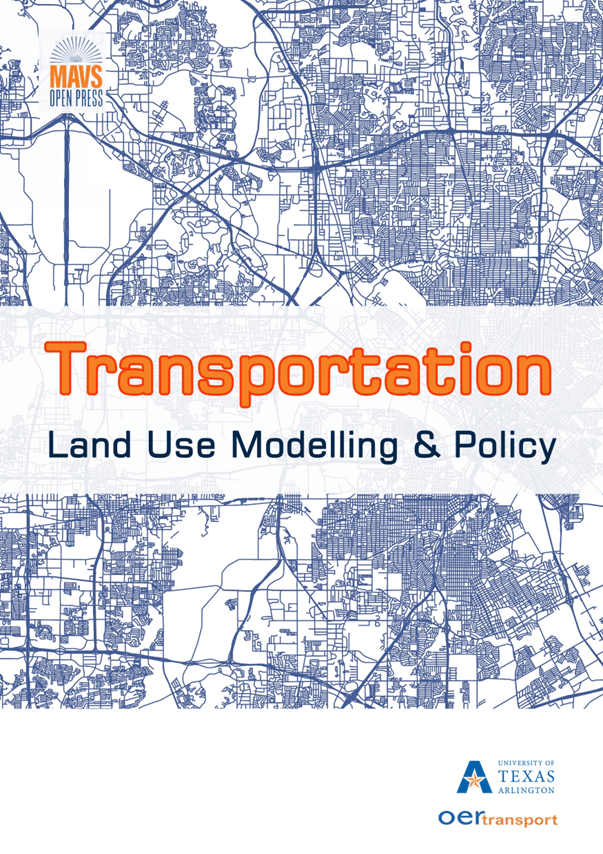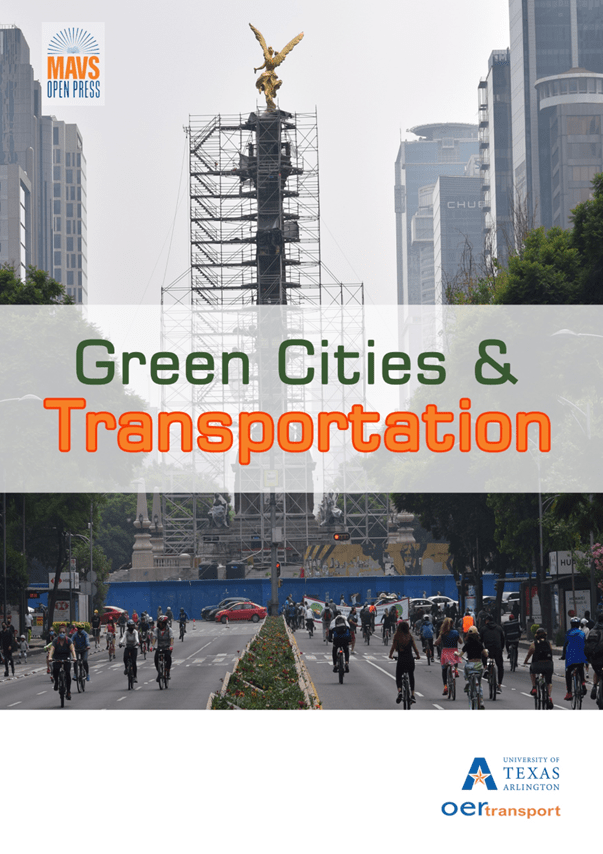oertransport Textbooks
PLAN 5315
Transportation Policies, Programs and History
Transportation and related programs and policies in relation to city development and housing patterns. Interdependencies of land use, building development, and social change are explained as transportation-related.
PLAN 5309
Transportation Land Use Modeling and Policy
Transportation Land Use Modeling and Policy Analysis delves into the fundamentals of land use and transportation models, aiming to provide a comprehensive understanding. The book explores in detail various integrated land use and transportation modeling approaches through case studies and real-world examples. Beginning with an overview of current transportation planning issues and US transportation policy, it progresses into multiple chapters dedicated to different models. The book thoroughly dissects traditional travel demand modeling, offering readers a solid foundation in the subject matter.
PLAN 5327
Green Cities and Transportation
Green Cities and Transportation examines the significance of sustainable transportation projects for mitigating greenhouse gas emissions while supporting transportation equity for vulnerable commuters. The book examines case studies worldwide that can serve as a reference for sustainable transport initiatives in the U.S. The textbook is divided into three sections: 1) Sustainability, Transportation Equity, and Planning, 2) Case Studies and Lessons from the North and South, and 3) Greenhouse Gas Emissions, Cities, and Mobility.
UPR 6711
Multimodal Transportation Planning
Multimodal Transportation Planning introduces readers to the principles and practice of integrated land use and transportation planning. The primary focus of the textbook is on planning for the mobility needs of all transportation system users, with an emphasis on pedestrian, bicycle, automobile, and transit modes. A related focus is on reducing society’s dependence on the automobile for personal travel. Readers of the text will be able to gain knowledge that supports a variety of learning objectives. Key themes and objectives relate to conveying an understanding of the relationship between land use and transportation, the difference between traditional methods and multimodal planning best practices, and the importance of evaluating performance from an accessibility and quality of service perspective.
CE 527
Sustainable Mobility
This textbook and OER material cover tools and basic knowledge required to prepare transportation engineers and planners to contribute towards a carbon-neutral mobility future. In addition, we will explore the potential for vehicle electrification, automation, connectivity, and ridesharing to reduce the carbon impacts of automobility. The textbook modules are intended to inform and teach students how to design streets for modes that have almost no carbon emissions. The goal of the textbook is to train engineering students on existing tools and policy levers that can be used to incorporate emerging transportation technologies in a sustainable, equitable, and efficient manner. The course is designed for graduate transportation engineering, and city and regional planning students. The undergraduate seniors will be able to absorb the materials given they have already taken fundamental courses on transportation engineering and planning, including traffic engineering and highway design.
CE 400
Pre-req Material for Transportation Engineering Coursework
Fundamentals of Math, Physics, and Statistics for Future Transportation Professionals covers tools and basic knowledge required to master the prerequisite essentials of physics, mathematics, and statistics applied in transportation engineering. The textbook modules are intended for students with undergraduate degrees in planning and other less technical fields who are interested in pursuing transportation careers where background engineering knowledge is required.






